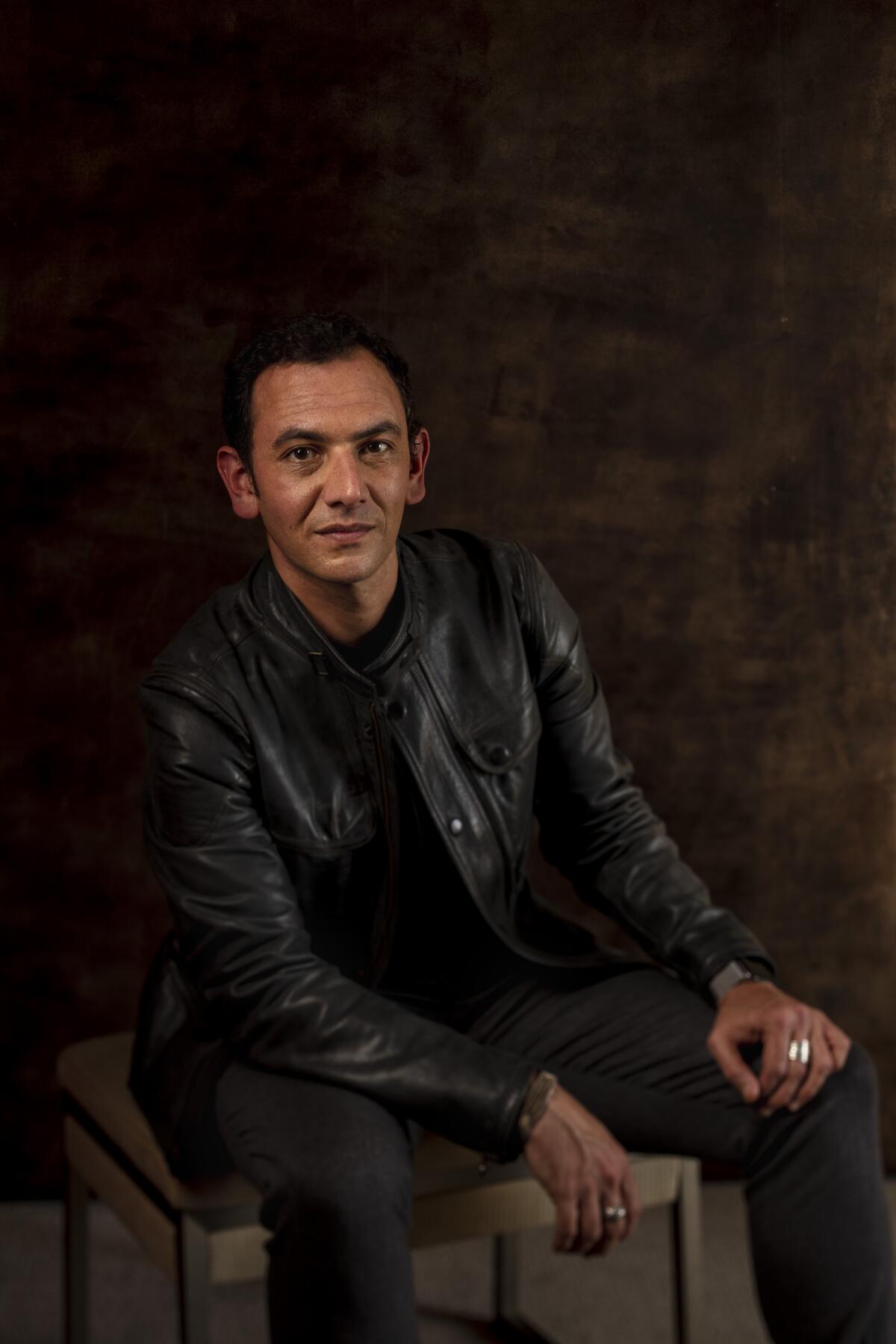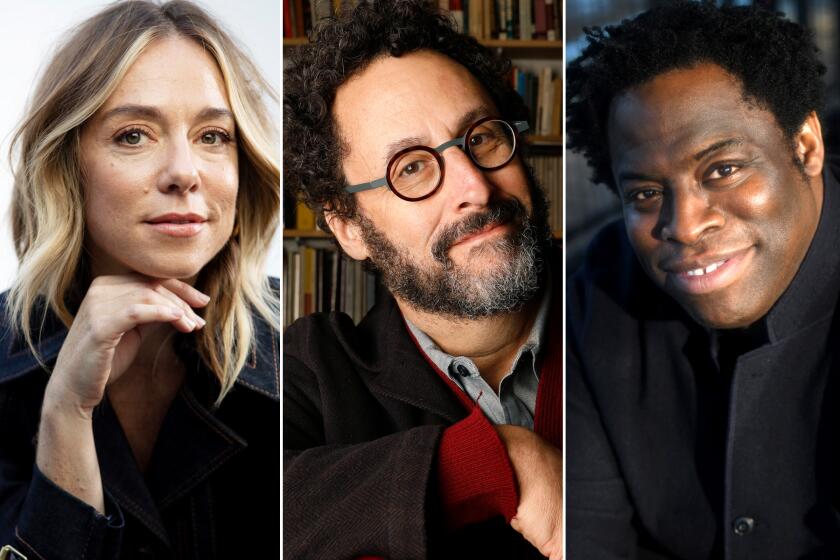‘Gucci’ characters needed to take themselves seriously, letting in humor, satire

- Share via
I remember watching an Italian news report when I was 12 and seeing Patrizia Reggiani in church, dressed in black, mourning the death of the man she had killed just a few days earlier. I grew up in Milan, Italy. My mother is a fashion designer. As a child, I would feed ducks with my father just three doors down from where Maurizio Gucci was murdered.
So when Ridley and Giannina Scott called me to discuss writing “The House of Gucci,” which they had tried to bring to the screen for almost two decades, I saw it as more than just a writing gig: I saw it as the opportunity of a lifetime. A perfect blend of my interests as a storyteller and a world I knew intimately.
The writing process began by reading Sara Gay Forden’s book, “The House of Gucci,” which is a wonderful biography of the family and the brand from its creation in 1921 to the present. I was lucky enough to speak Italian and accessed articles written about the Guccis in the 1970s, ’80s and ’90s. I found wonderful nuggets of gold throughout the articles. For example, that Paolo was president of the Pigeon Fancier’s Assn. or Aldo’s reputation for picking up young ladies shopping at his stores.
In their own words: Tony Kushner, Rebecca Hall, Jeymes Samuel and other screenwriters take us on a journey through writing their film scripts.
But as with any good adaptation, there came a point when I had to put the source material aside and make the story my own. This is a work of fiction, not a docudrama or a biography. And at the center of it is Patrizia. One of the most overused notes given to screenwriters is to make the protagonist “sympathetic.” And while I generally disagree with this, I felt Patrizia’s 30-year arc was so big, so broad, that she needed to start in a place of love for Maurizio for the love story to compellingly turn into one of sheer horror. After all, it would be far more relatable for audiences to deal with a tale of doomed love rather than focus on the gold-digging, cynical aspect of the character.
“Tone” is another interesting term that gets thrown around a lot. Ironically, the writer is perhaps the last person to be aware of tone as he or she is writing. Of course, some stories naturally fall into a certain genre, and there are conventions that might be followed within that framework. But with “House of Gucci,” I knew I had to have fun with the material. Much like a rich Italian meal, it was all about giving it as much color and exuberance as possible. The biggest pitfall would have been turning what is a melodramatic, operatic minestrone into something too austere, too self-righteous. The characters should take themselves very seriously: but herein lies the humor and satire.
I researched for three months and wrote the script in another three months. My first draft was 135 pages long. At one point, we had a 150-page manuscript — Ridley and I kept adding new scenes, drunk on Gucci enthusiasm. The shooting script was close to the original 135. I don’t think many of the new scenes in the longer draft made it to the finished script, but we got to know those characters and the story better.
This is my first produced feature film. I spent a year during the pandemic in Colombia after going to a wedding in Bogota and getting stuck there. I was working with Ridley and the actors remotely for most of that year. Ridley graciously allowed me to be on set for the entirety of the shoot, from the first frame to the last. I will eternally be grateful to him for that — he knows I want to direct, and it was a masterclass in filmmaking by a true master.
I will never forget arriving in Rome in February at my hotel, which also served as the production offices for the film. I put my bags in my room and ventured upstairs to the sixth, seventh, eighth floors. It was the middle of the night, nobody was around. Each floor was dedicated to a production department. To see my ideas come to life — the cars I had referred to, the food, the fashion shows, the clothes — was incredibly emotional.
After many years of writing in a bubble, never seeing my dreams brought to life, here I was, working with incredible artists, on a story that brought me right back to the city I grew up in — Milan. The city where I fell in love with cinema.
More to Read
Sign up for The Envelope
Get exclusive awards season news, in-depth interviews and columnist Glenn Whipp’s must-read analysis straight to your inbox.
You may occasionally receive promotional content from the Los Angeles Times.










